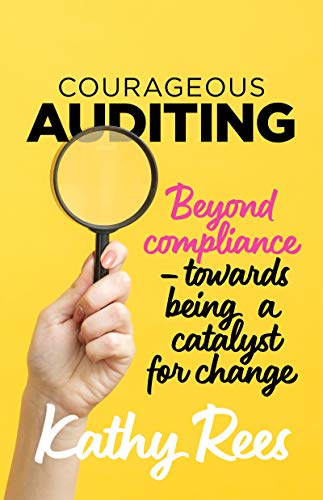This has been an amazing year, hasn’t it? Chaotic, managing the fallout of sudden changes in our work and the way we operate in our community, sad stories, heroic stories, people who lost their job and other people who have been the busiest they have ever been. So many contrasts! And in amongst all of these are the stories of success and those where mistakes have been made.
Ask anyone around you how they feel about making mistakes and you will hear lots of different perspectives, ranging from the extensive amount of effort some people take to prevent them from happening, through to people saying their most important life learning has occurred as a result of mistakes. Many people live in fear of making mistakes and do everything they possibly can to hide them. However, I think making mistakes is part of the human condition, as much as trying to make out that we are somehow infallible and perfect – when the reality of life is that it is messy and often quite erratic!
Mistakes often happen when you least expect them to occur and, golly, some mistakes are embarrassing to live through, aren’t they?! Sometimes we make mistakes, thinking all is well at the time only to find out that our actions have resulted in unnecessary work for other people. This week, I had an example of that in my own work-life, where efforts to be respectful backfired on me and created extra work for already busy people. This mistake has resulted in important reflection, particularly on the reasons why I do what I do in my work and how these reasons align with the foundational values of people who I admire and respect. In my need to get a job completed, I had forgotten that taking what looked like an apparent short-cut could have resulted in a worse outcome for other people.
Was that my intention? No, it wasn’t, but I have to say that when this situation happened, it gave me a pretty good ‘boot in the batootie’ and a really solid reminder of what is important. My virtual team is critical to me and I am absolutely emphatic that I cannot do my best work without them, nor do I want to harm them or cause unnecessary work because of my actions.
While trying to resolve situations like this, I think there are many ways we can look at and learn from mistakes, such as:
- Looking at the areas where we have been working on auto-pilot and identify where we have drifted off the path – and do something about it!
- Remember that mistakes are a great motivator: once we have identified what happened, get back in the saddle, be solutions-oriented and include the team as much as I can. Where things are not clear, take the time to communicate about the issue – and listen to the response!
- Viewing mistakes as a failure might feel right in the short term but doesn’t help over time. A very intelligent person once said: ‘If we are not making mistakes, we are not taking big enough risks….’
- Mistakes help us to remember that all of our efforts, whether they are good, bad or indifferent, help us to be fully engaged in life. The more mistakes we make, the more we are learning and ultimately get out of life (even when we don’t like making mistakes in the first place!).
Personally, I really don’t like making mistakes that hurt others, whether these are people I care about or people with whom I have virtually no ongoing connections. When I become aware of the impact of my mistakes on others, I certainly strive to take the time to listen and work on ways to make the required corrections. Naturally enough, sometimes this works; sometimes it doesn’t. There are many things that are out of my control and the reactions and responses of other people certainly fall into that category. I think the important focus needs to be on the intention I am making to resolve the issue when I become aware of it. That much I can certainly control!
Unknown
Don’t carry your mistakes around with you.
Instead, place them under your feet and use them as stepping stones.
Never regret. If it’s good, it’s wonderful. If it’s bad, it’s experience.
Thinking ahead:
- How do you address mistakes when you become aware of them?
- Who gives you feedback about how you handle mistakes? Are there people around you who can walk you through the learnings associated with making mistakes? If you don’t currently have someone who can do this, how would this type of person help you to see new perspectives from making mistakes?
- How are mistakes viewed in your workplace? Are mistakes acknowledged, threaded into daily life or viewed negatively and punished?


